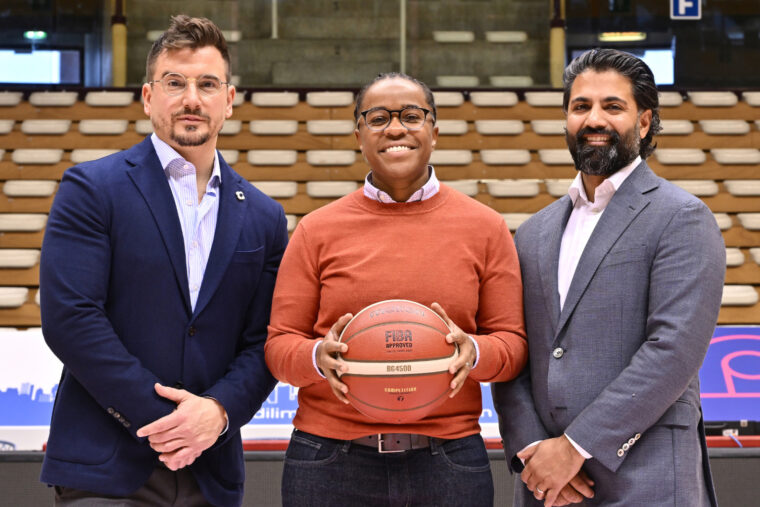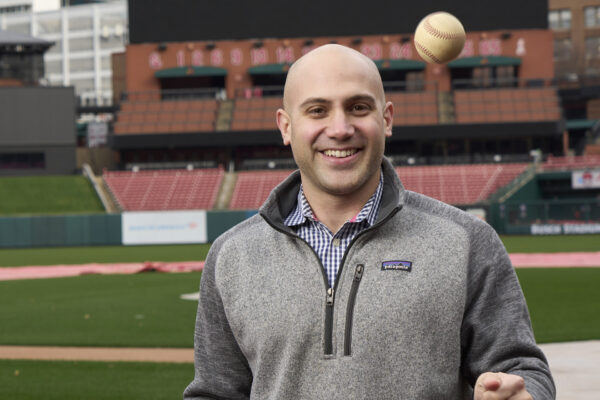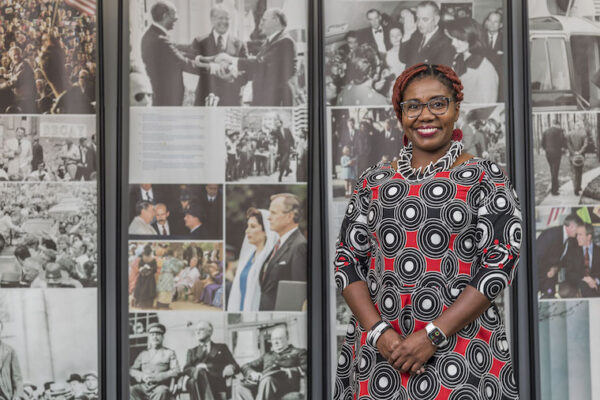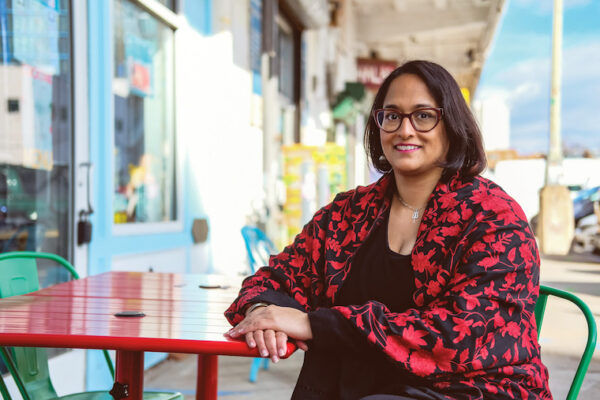In the 11 years since graduating from Washington University, Fitzann Reid, JD ’12, has worked as an attorney, taught courses at WashU’s School of Law and co-founded Cotogna Sports Group (CSG), an investment group focused on purchasing and developing sports franchises.
And now she’s part owner of a basketball team, writing her own rulebook as a Black woman and sports executive of an international sports franchise.
Earlier this year, the CSG acquired Italian basketball team Pallacanestro Trieste in Friuli-Venezia Giulia, a region known for its rich basketball culture. Basketball legend Michael Jordan played in Trieste in 1985, and the frenzy for the sport has not died down. “We looked at the culture, and we spent a lot of time talking to the people there,” Reid says. “They have such a love for this team.”
Reid, who recently graduated with an MBA from the University of Pennsylvania’s Wharton MBA Program for Executives, established CSG with Wharton classmates, with each member taking on a different role and leveraging a unique skill set. For the Pallacanestro Trieste acquisition, Reid, a lawyer by trade, spent time hiring outside legal counsel, working on due diligence and developing the legal strategy. Now, as the team is closing out its season, she works closely with the managers, coaches and players to determine areas of improvement for next season and beyond.
“People are counting on us, not just for jobs, but for the success of this team,” Reid says. “You really sit with all that comes with this and appreciate that. It represents more than just sports for them — it represents their culture. I’m just proud to be part of this in a region that is very historic in Italy.”
Reid says that while she took a traditional legal path — working for Wells Fargo Advisors, the U.S. Securities and Exchange Commission and now serving as deputy general counsel at the investment firm Engine No. 1 in San Francisco — she has always had an interest in sports and business.
“Part of the reason why I went to business school is to learn and expand my skill set,” Reid says. “I’m not just a lawyer — I’m a lawyer and I know the business side. I always knew I wanted to start a business but didn’t quite know what the business would be. The mix of sports and running a business is a perfect intersection of that.”
“It’s really important to me to lift as I climb. Being deliberate about outreach to certain communities and letting people know that these possibilities are there opens up a lot of doors.”
Fitzann Reid
Still, Reid says her legal background and education have been instrumental in her path to sports ownership. “I wouldn’t have this opportunity if I didn’t have my education at WashU,” Reid says. “I took classes in business and finance law, and there was such a rich number of professors who had business and finance backgrounds that helped me get my job at Wells Fargo after law school.”
“WashU set me up for success in terms of my career trajectory — it made a huge difference. It’s the legal training that helped me get here and financially support this endeavor.”
About that rulebook she’s writing: As a Black queer woman, she hopes to pave the way for others in sports ownership.
“Ownership is such a closed network, and the opportunities are just not presented to women and Black women and other folks of color,” Reid says. “It’s really important to me to lift as I climb. Being deliberate about outreach to certain communities and letting people know that these possibilities are there opens up a lot of doors.”
Diverse leadership can also improve the team itself. “You’re adding a different perspective to some of these teams — how you think about the sport, how you treat the players — and it just opens up so many possibilities when you have a diverse group of people in a room making decisions about a team,” Reid says.
The CSG hopes to expand its scope. “I think owning a team in Italy is just the beginning,” Reid says. “Our goal is to own other teams in the future, including a women’s soccer team in the United States.”



